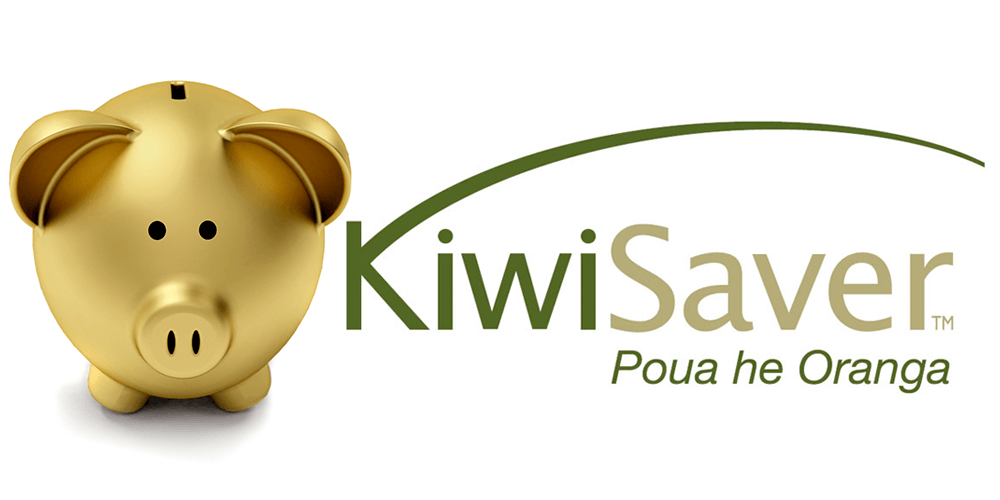What happens to your KiwiSaver Account on your 65th Birthday?
It’s not often we adults get excited about turning another year older, but turning 65 is a milestone we should all look forward to, and deserves congratulations. You may be planning to put down the tools or perhaps you want to keep on working, either way, you may be curious about what turning 65 really means for you financially?
Turning 65 in New Zealand means you are eligible to receive NZ Super payments, as well as now have access to your KiwiSaver account. It also means cheaper movie tickets and bus fares because you are now eligible to get a Gold Card! However, there are some blurred lines around how you withdraw once you turn 65, whether you can still join, and what happens if you are still working? Raising questions such as:
- Do I have to withdraw my entire retirement savings?
- What if I joined in my 60’s?
- What if I am still working and don’t need to access my KiwiSaver yet?
Withdrawing your retirement savings once you turn 65 is very flexible and can be tailored to your specific situation but make sure you consider your wants and needs is important when making your withdrawal decisions. The Director of National Capital, Clive Fernandes, states “The key to success is to have a financial plan in place to prepare for the future”. Watch the below video to learn more about how you should approach your KiwiSaver account and financial planning.
For no-cost, personalised KiwiSaver advice take National Capital’s Complementary HealthCheck now.
Before completing the HealthCheck, Shawn and Abby (Names changed) weren’t aware of how many Kiwi Saver options were available to them.
Both in their mid-fifties, they recently sought advice on their KiwiSaver funds. Being 10 years away from retirement, they have started thinking about what comes next. Mark has a higher interest in finances than Debbie, but neither wanted to be missing out on further potential gains by rebalancing their portfolios and re-evaluating their financial plan.
“We had a basic understanding of the different funds and KiwiSaver investment options available to us, but wanted to make sure we were in the best position for the long term,” says Mark.
One example recommended to Debbie was to move her existing money in a Conservative Fund and invest all new contributions into a High Growth Fund. This balances volatility and returns so Debbie would have the necessary funds at the start of retirement while also seeing higher returns from the Growth fund later in retirement.
Personalised financial advice is beneficial to everybody, get yours now!
Following their personalised recommendation, they’re now both in KiwiSaver funds that align with their current situation and where they’d like to be when and after they retire, while also now aware of the need to re-evaluate their strategy if their situation changes. Thus switching KiwiSaver in the future isn’t entirely out of the picture.
“It’s good to know there are options for us and our KiwiSaver funds are definitely something we’ll revisit as we get closer to retirement or if there is a significant change to our current earnings and circumstances,” says Debbie.
Clive says that small changes to funds today can result in valuable gains when it comes to retirement.
“Taking the time to seek advice and understanding the different funds available puts people on the right track to meet their retirement goals, whether that’s having $1,000 a week or a different amount, a plan helps people achieve that”
{{cta(‘5ef30a96-89a9-43e1-b1c0-b0199785cb15′,’justifycenter’)}}
Let’s now look back and answer the previous questions outlined:
- Do I have to withdraw my entire retirement savings?
- What if I joined in my 60’s?
- What if I am still working and don’t need to access my KiwiSaver yet?
Question 1: Do I have to withdraw my entire retirement savings?

KiwiSaver funds do not have to be withdrawn in their entirety.
The short answer is no, you are not required to withdraw your entire retirement savings lump sum. However, this is an option if that’s what you have planned and decided is best for you. Otherwise, you could make partial withdrawals, set up regular withdrawals, or even continue contributing to your account. Essentially, there are multiple ways to accessing KiwiSaver upon retirement.
Partial withdrawals:
Making partial withdrawals may be a good option if you are looking to treat yourself to a new car or go on holiday in celebration of retirement. Just keep in mind that depending on your provider receiving this withdrawal may take a few days to a week to be processed into your account. If you are looking at withdrawing your entire savings then this may take longer for your provider to process and has some extra areas to consider. This option should be fully looked into before deciding to fully withdraw your savings. It’s important to consider what your financial needs will be throughout your retirement before making these lump-sum withdrawals.
Regular Withdrawals:
You are able to set up regular withdrawals which can act as income streams throughout your retirement. These withdrawals can be made automatically so that you are receiving weekly, fortnightly, or monthly payments from your retirement savings. This option is an effective way to manage your retirement savings throughout your retirement. To ensure you manage this effectively you must correctly plan for your weekly expenses and keep in mind that your expenses will change throughout retirement.
If you’ve decided to withdraw your KiwiSaver funds, you’ll need to contact your KiwiSaver provider and complete their withdrawal form along with a statutory declaration. Once you have completed the withdrawal form and signed the requirements, you can look forward to receiving the KiwiSaver funds in your New Zealand bank account.
Question 2: What if I joined in my 60’s?

You can create a KiwiSaver account at any time.
Joining KiwiSaver in your 60s does not mean you are not eligible to withdraw once you turn 65, but there are some conditions with your withdrawal. As of the 1st of April 2020, it was announced that if you had joined between the age of 60-64 you can either:
- Opt-out anytime after you’re 65 and thus withdraw all your retirement savings
- Keep your funds in KiwiSaver for the full 5 years and then withdraw your retirement savings as you wish.
Question 3: What if I am still working and don’t need to access my KiwiSaver yet?
 If you continue working, your automatic contributions will continue to be made unless you opt out.
If you continue working, your automatic contributions will continue to be made unless you opt out.
Retirement at 65 isn’t for everyone and because there is no official retirement age in New Zealand many of us Kiwis are choosing to work past 65. But what does this mean for your KiwiSaver?
If you choose to continue working past 65 things will continue as normal, meaning your automatic contributions will be made. However, you do now have the option to opt-out of these if you wish to. It’s important to note that your employer is no longer legally required to also make contributions so it will be up to them whether they continue with these payments. The government will also stop contributing to your KiwiSaver account once you turn 65, unless you joined in your 60s then this will continue. Despite the likelihood of no longer receiving your employer’s or the government’s contributions, KiwiSaver is still an advantageous retirement savings tool. If you are planning on working past 65, continuing to contribute is a great save and you still earn money(returns) on your money.
{{cta(‘a8bff18e-b460-432a-90ca-90175772e648′,’justifycenter’)}}
Things to remember as you near 65
How you plan to spend your retirement is unique and up to you to decide. Take into account New Zealander’s average life expectancy: 86 for men and 88 for women. This will affect how much you will need to stretch your savings out over retirement. If Kiwisaver is a significant part of your retirement income then take the time to consider how to effectively handle these funds throughout the different stages in retirement so you don’t fall short. If you currently don’t have a plan of how you want to spend your retirement or whether you’re on track to ensure you live a comfortable retirement then let us help.
Take control of your retirement now by taking National Capital’s Free HealthCheck. This takes less than 10 minutes to complete and will offer you personalised recommendations and advice to help you optimise your retirement savings.
Over 1000 Kiwis now have peace of mind about their retirement savings after using National Capital’s HealthCheck process. National Capital has helped Kiwis optimise over $70 million of their retirement savings.
{{cta(‘a8bff18e-b460-432a-90ca-90175772e648′,’justifycenter’)}}

